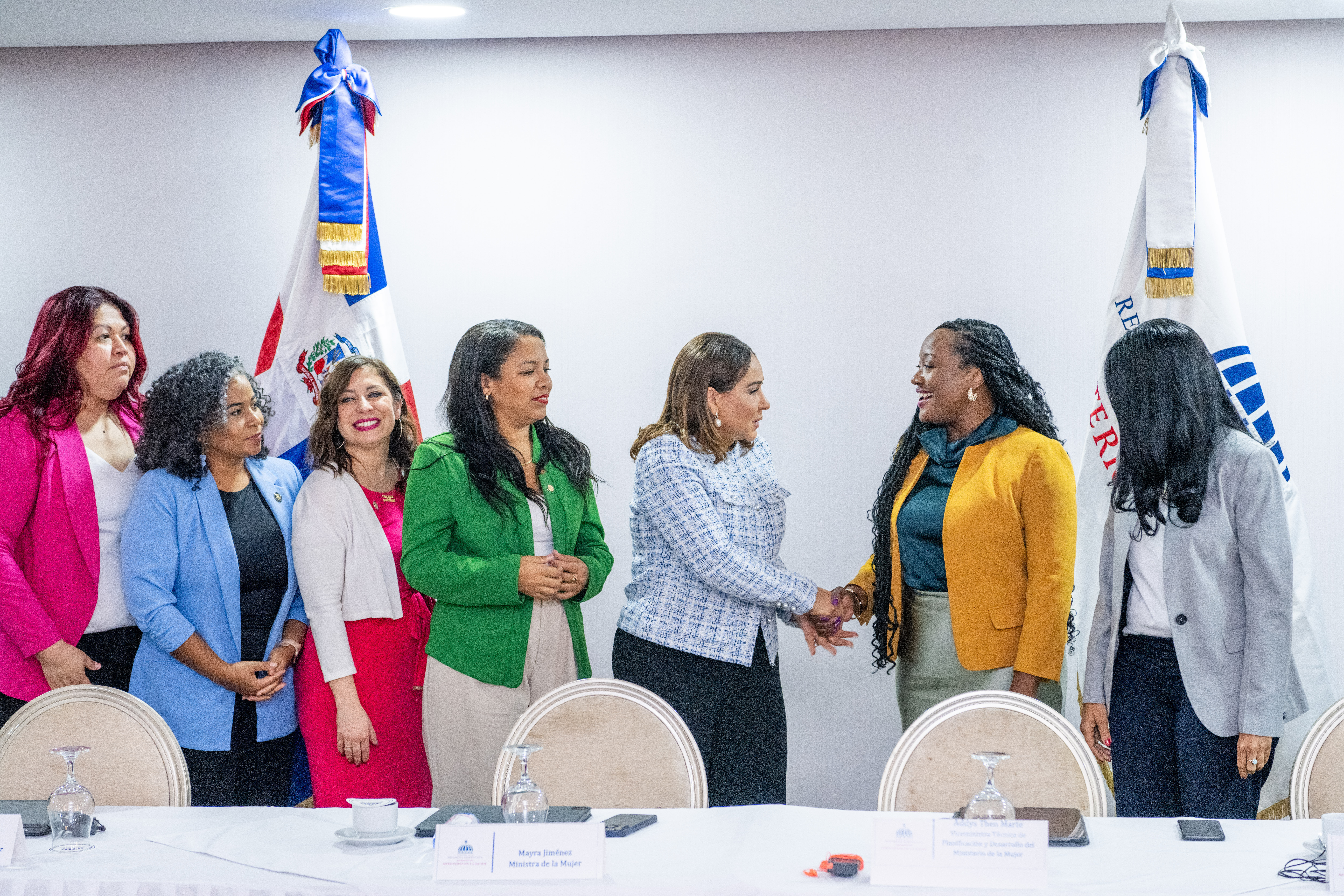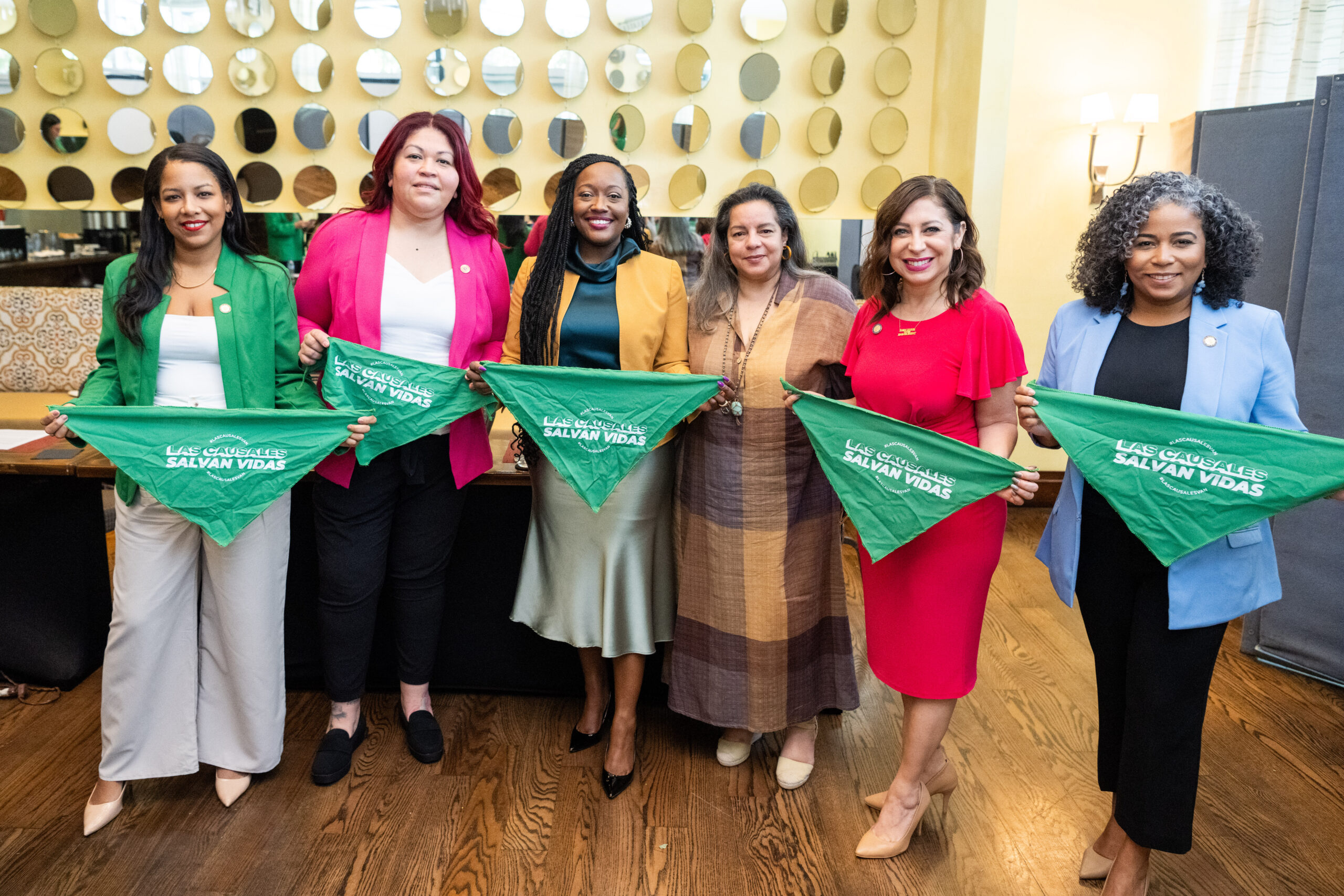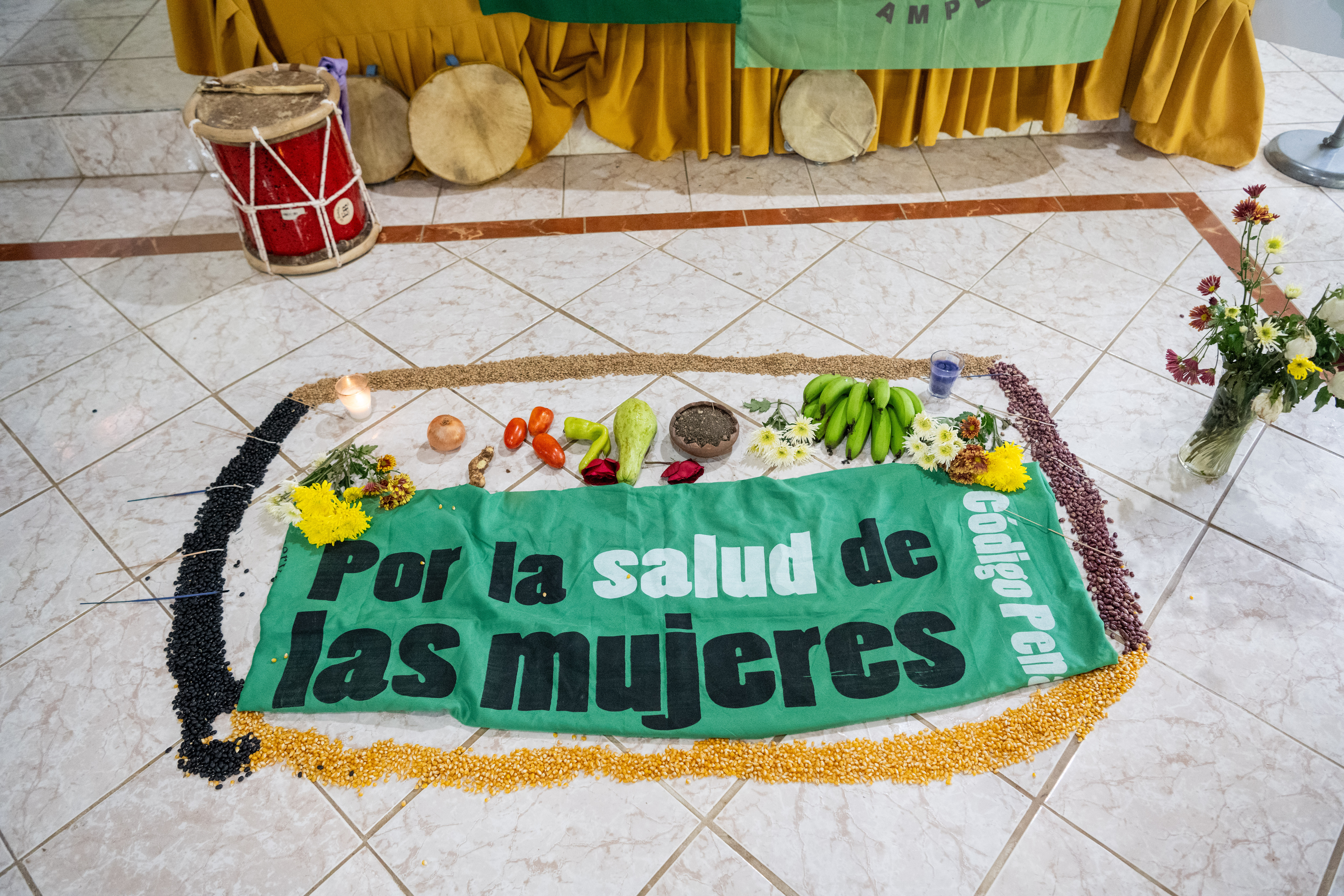In the Dominican Republic, I Saw Broken U.S. Abortion Policy Firsthand
U.S. lawmakers spoke out about abortion access in the Dominican Republic. The Biden administration didn't back them.

In early December, a delegation of U.S. state lawmakers traveled to the Dominican Republic as part of a trip organized by State Innovation Exchange and the Women’s Equality Center. I was one of a group of journalists, and the only one based full time in the United States, who tagged along.
The lawmakers on the trip were New York assembly members Karines Reyes, Amanda Septimo, and Jessica González-Rojas—the former executive director of the National Latina Institute for Reproductive Justice—along with North Carolina state Sen. Natalie Murdock and Arizona state Sen. Anna Hernandez.
We traveled to the Dominican Republic to learn about the consequences of the Caribbean nation’s total abortion ban. There are no exceptions, even in life-or-death circumstances. The law carries penalties of up to two years in prison for pregnant people who have or attempt abortions and between five and 20 years for health-care workers.

Of course, many people find a way: Those with means can travel or pay for care in private clinics that might be more permissive, and there are networks that help people obtain abortion pills. But it’s a high-risk proposition. Public hospitals, one nurse told us, are monitored by police, who often arrest women who come in with vaginal bleeding. (If you’re thinking that sounds like a direction many U.S. states are headed in, you would be right.)
For decades, feminist activists in the Dominican Republic—one of whom told me that they’re the “most hated women in the country”—have been fighting for “las tres causales,” or the three circumstances, a policy change that would allow abortions to preserve the life of the pregnant person, in cases of rape or incest, and in cases of fatal fetal diagnosis.

Luis Abinader, who has been president of the Dominican Republic since 2020, says he supports las tres causales. But so far, his administration has failed to follow through on its promise to change the country’s penal code. This inaction has prompted several protests, including a three-month campout in 2021 near the National Palace.
From the start of last month’s trip, the presence of U.S. lawmakers and the focus of their visit made a stir. “Estamos aquí para apoyar a las tres causales,” New York Assembly Member Amanda Septimo said in a meeting with Dominican lawmakers on the first day. “We’re here to support the three causes.”
That statement carries more weight than you might realize.
The New York City metropolitan area is home to over 1.1 million Dominicans, the largest Dominican population outside the Dominican Republic. Reyes and Septimo are both Dominican Americans, and they both represent parts of the Bronx, which is now home to New York City’s most concentrated Dominican population.
Many of their constituents are dual citizens eligible to vote in Dominican elections. These dual citizens have long been a powerful voting bloc and are known for being highly engaged in politics both in New York and in the Dominican Republic. Pressure from this population in support of las tres causales could help the decades-old campaign finally succeed. And activists are working hard to make that happen.
For example, when Abinader traveled to New York last year to be the grand marshal of the National Dominican Day Parade, advocates marched in the parade in support of las tres causales. They were decked out in green, the color that has come to represent Latin American abortion rights movements.

So, the New York lawmakers’ comments made quite a splash in local media. Apparently, the U.S. embassy in the Dominican Republic was not impressed.
In response to questions about the delegation’s comments, U.S. embassy spokesman Gabriel Hurst told the Dominican news outlet Acento that the U.S. government doesn’t take a position on abortion abroad. Hurst also emphasized that the delegation members were state lawmakers, not members of the U.S. Congress, and therefore didn’t represent the official position of the United States. This is an interesting comment, given that individual members of U.S. Congress routinely express personal opinions that don’t represent the entire federal government or the president’s position.
Dominican activists aren’t even asking to decriminalize abortion entirely. They’re just trying to put policies in place to stop pregnant people from dying. Sound familiar? The same fight is playing out across multiple U.S. states and has already made its way to the U.S. Supreme Court. And here, the Biden administration is on the side of health exceptions to abortion bans.
Biden has also taken some steps to support abortion access abroad.
The global “gag rule,” first introduced by the Reagan administration in 1984, is a policy preventing foreign organizations that receive funding from the U.S. government from talking about abortion. They can’t provide information about abortion to the people they serve, refer them to abortion services, or do any abortion-related advocacy—even if they spend their own money, from a source other than the U.S. government.
Ever since the Reagan era, this policy has been a political football. Democratic presidents repeal it; Republicans bring it back.
But when Donald Trump took office, he didn’t stop at reinstating the rule: His administration expanded it. Instead of applying the policy only to organizations that receive family planning funds, the Trump administration broadened it to apply to all organizations receiving any sort of U.S. global health assistance. That included funds meant for HIV and AIDs prevention, clean water, and stopping the spread of infectious diseases, among other programs. Instead of affecting about $600 million in family planning funds, as usual, as of 2018 the policy applied to an estimated $12 billion in U.S. foreign aid.
Biden rescinded the global gag rule in one of his first acts as president. (However, he left in place the Helms Amendment, which prevents U.S. foreign aid funds from directly paying for abortion services.)
“It is the policy of my administration to support women’s and girls’ sexual and reproductive health and rights in the United States, as well as globally,” Biden wrote in a memorandum.
If that’s true, he might want to give the U.S. embassy in the Dominican Republic a call.
